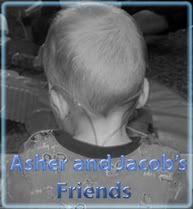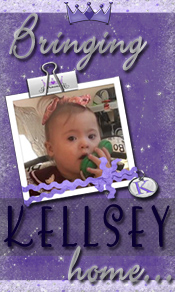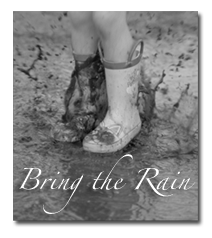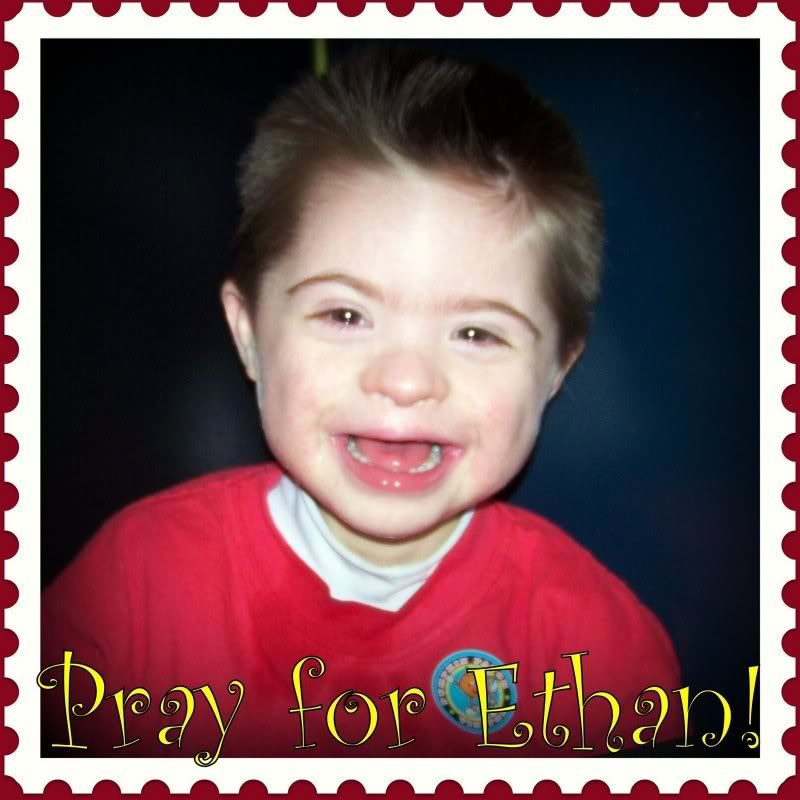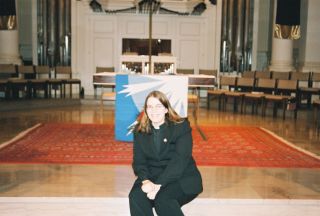I know it is Easter, but I want to take you back to another church season; that of Christmas. We all have our favorite Christmas movies: the Bells of St. Mary’s, It’s a Wonderful Life, A Christmas Story, and so on. We could take time now to name about a few dozen without even blinking.
One of my favorite Christmas movies came out in the early 90’s and is called “The Santa Clause”. It stars Tim Allen as a business man who has Santa fall off his roof, making him the new Santa Clause. Him and his son get in the sleigh, help deliver the toys and end up in the North Pole.
At first, Tim Allen’s character Scott Calvin doesn’t believe any of this. Like most adults, he doesn’t believe in Santa. He goes along with it for the sake of his son but that is all. He fights tooth and nail all the changes taking over him; the weight gain, the cravings for milk and cookies, the beard that won’t go away. Throughout the movie he is reminded that seeing isn’t believing but rather believing is seeing. He soon comes to terms with that fact that he is the new Santa and the North Pole is real. He learns to embrace his new role.
Here in John, we encounter another moment like in the movie that takes a leap of faith. Thomas is faced with his doubt, better translated as unbelief. He does not believe that the figure standing in front of him truly is the resurrected Jesus. It can’t be. He is dead. He is in the tomb. There is no possible way someone who endured what happened on the cross could truly be standing in front of him. He needs to feel tangibly for himself that it is Jesus. He needs the nail holes in Christ’s hands and feet.
We all have a bit of Thomas living inside of us. We are people who need evidence to base truth on. We have heard the story of Thomas and in many ways we have all lived it. Each of us at one point or another in our lives have probably asked God to “show me a sign, Lord” or “Please God, give me some evidence that you are here”. It is a natural human response to want evidence to base a fact on. In moments of intense pain or times when we cannot sense God’s presence, it is not surprising we ask these questions.
And why wouldn’t we? We live in a world where "evidence" trumps faith. We send robots with cameras to the farthest ends of the universe so we can know for sure what's out there. We won't believe an assertion until a complicated mathematical equation says it's true. And anytime--anytime--there is a wall bearing a sign "wet paint," many of us will touch it just to be sure.
That is the world we live in. That is the way our brain works. We are taught from an early age that to believe, we must see. We are taught this with everything in our lives except when it comes to Jesus. There we are taught to change our way of thinking, to go against what has become the norm. That is not an easy thing to do.
Yet this is what faith calls us to. It calls us to believe with all our hearts our loved one will be healed. It takes us to the place of trust that even though money is tight now, everything will turn out just fine in the end. It encourages us to hope in the impossible, to trust in a God we cannot tangibly touch is there with us, guiding us along the way.
The Rev. Dr. Martin Luther King, Jr. said, “Faith is taking the first step even when you don't see the whole staircase.” This is what leaders and visionaries do. They believe in something bigger than themselves and they begin to act as if it is so.
We are called as the body of Christ to take that step of faith and trust in a God whom we cannot touch like Thomas did. We cannot put our finger in his hand or side and know that he died and rose from the dead. We are to believe in what we cannot see.
We are to believe that even though we are not presented with the physical, resurrected Christ we still encounter him on a daily basis. For he lives and breathes in each of us. Just as he blew the Holy Spirit upon the disciples in the upper room, he has done the same for us as the church on Pentecost. While he does not stand before us today as the bodily resurrected Christ, he is standing before you this day. He is seated next to you in your pew. He is playing the organ during this service. He is being eaten and drank during Holy Communion. We are surrounded by the resurrected Christ 24 hours a day, 7 days a week.
For Jesus is alive, he is resurrected. God is present all around us. What we are asked to do is to take that first step even when we don’t see the whole staircase. We are to remember that to see isn’t to believe, but believing is seeing. Just because we cannot see Christ as he was 2,000 years ago does not mean he isn’t here. The evidence is all around us, if we would just take the time to see through our belief.
I remember several years ago a person I know well was working as a nursing assistant. After watching a slow and painful death of one of her patients she told me she didn’t know how anyone could believe in a loving God after witnessing such a horrible thing. How could any God allow such a thing to happen? Obviously God wasn’t there.
Not long after that, I sat next to a bedside of someone dying from a very painful cancer. It was a long, painful, and drawn out death. The family and I stood beside the patient, having prayer, along with the family telling him how much he was loved. As I stood there, I couldn’t help but to think about how very real God was at that moment. How much his presence was alive in that room.
That is the difference between faith and unbelief. It is the difference in the lens through which you view. For to look in on a situation such as a painful death with eyes of unbelief, all you see is pain and death. Through the lens of belief, what you witness is something far different. You can see past the pain and death and look at the same scene with eyes that see love and everlasting life.
This is the gift we are given in the resurrection. It is knowing that death is not the end. It is being able to believe and see the world through a whole different light. We can see the spring in the midst of winter. We can know and trust that Jesus Christ has risen from the dead and that we too will experience new life. For to believe is to see that the grave is not the end. It is to know that we can proclaim Alleluia with hope and assurance. Amen.
Saturday, April 10, 2010
Friday, April 02, 2010
Good Friday Meditation
It is a tremendous loss to have someone you love die. It is an even greater loss to watch your Messiah die. To watch as your hopes for a better future are shut down by the furious crowd crying out to crucify him. To listen to the words of judgment being spoken that you know are so unjust. To smell the stench of death as you inch closer and closer to Golgotha.
Yes, it is one of the most painful things we will face to lose someone we love. But to watch as your hope is being shut down as the one you believe came to save you from unjust persecution, hopelessness, trials, pain, and fear is something unmatched. For as you watch the one you call Messiah die painfully and unjustly is to watch any hope that love truly does trump evil fall away.
This is the pain felt by the disciples on that Friday. While words were spoken by Jesus, preparing them for this day, they were silenced by disbelief it could really happen. When words of hope were spoken that this was not the end, they were deadened by the crowds and hatred surrounding them. The day we call Good Friday was anything but good for the men and women who loved and followed Jesus. To them the world they knew with Jesus, and the world they knew prior to his coming, was now about to be lost. They believed they were entering a world that would never see love and hope again; a world worse off than ever before. They believed that what was happening to Jesus would also be the path they would soon take.
To try and imagine what it was like on that day is a task that is somewhat impossible for us to do. Like the reality of the situation was for the disciples on that day, we are too far removed from the truth of the real pain that was felt. We are unable to completely and without bias imagine a world without the hope and grace we experience today. We know the end of the story; to read and hear the words of the Gospel narratives on Good Friday without that knowledge is impossible.
Yet we try. We must try. For we as Christians need to attempt to experience the pain of that day. In attempting this great feat we are able to understand more fully the true sacrifice that the cross is. This is a way in which we attempt to not take what happened on this day, nearly two thousand years ago, for granted.
It is imperative we remember the pain. The pain Jesus felt as he carried that cross to the hill; his body ripped from his wounds, the sweat that covered him, the energy spent. We must remember the agony of the nails, ripping through his flesh and bone. We must remember the weight of his body pulling at his lungs and trachea. We must remember the hurls of insults, the lack of respect, the pain of knowing these are the people for whom you are dying. We must remember.
This is for us to remember, to force ourselves to open our eyes to, for it is us this pain is felt. It is for us that God came down to us in the form of a human. We are the ones Jesus the Christ is experiencing the pain for. We are the reason he was wounded. We are the reason he suffered. We are the reason he died.
Let us remember, take ourselves back to a time and a place of pain. A time that makes the losses we have experienced in our own lives, the ones that cause us the most pain imagineable, seem small in comparison to the death of our Messiah, our Christ. For without his pain, his suffering, his death…we would be without hope.
This is the truth of Good Friday. It is the truth we must face in order to continue on to tomorrow and Sunday. We must know and internalize the death of Jesus to see the truth of the cross. We must know it to understand what is to come. So take yourself back. Breathe in the message. Mourn like the disciples mourned. And remember this is not the end. Amen.
Yes, it is one of the most painful things we will face to lose someone we love. But to watch as your hope is being shut down as the one you believe came to save you from unjust persecution, hopelessness, trials, pain, and fear is something unmatched. For as you watch the one you call Messiah die painfully and unjustly is to watch any hope that love truly does trump evil fall away.
This is the pain felt by the disciples on that Friday. While words were spoken by Jesus, preparing them for this day, they were silenced by disbelief it could really happen. When words of hope were spoken that this was not the end, they were deadened by the crowds and hatred surrounding them. The day we call Good Friday was anything but good for the men and women who loved and followed Jesus. To them the world they knew with Jesus, and the world they knew prior to his coming, was now about to be lost. They believed they were entering a world that would never see love and hope again; a world worse off than ever before. They believed that what was happening to Jesus would also be the path they would soon take.
To try and imagine what it was like on that day is a task that is somewhat impossible for us to do. Like the reality of the situation was for the disciples on that day, we are too far removed from the truth of the real pain that was felt. We are unable to completely and without bias imagine a world without the hope and grace we experience today. We know the end of the story; to read and hear the words of the Gospel narratives on Good Friday without that knowledge is impossible.
Yet we try. We must try. For we as Christians need to attempt to experience the pain of that day. In attempting this great feat we are able to understand more fully the true sacrifice that the cross is. This is a way in which we attempt to not take what happened on this day, nearly two thousand years ago, for granted.
It is imperative we remember the pain. The pain Jesus felt as he carried that cross to the hill; his body ripped from his wounds, the sweat that covered him, the energy spent. We must remember the agony of the nails, ripping through his flesh and bone. We must remember the weight of his body pulling at his lungs and trachea. We must remember the hurls of insults, the lack of respect, the pain of knowing these are the people for whom you are dying. We must remember.
This is for us to remember, to force ourselves to open our eyes to, for it is us this pain is felt. It is for us that God came down to us in the form of a human. We are the ones Jesus the Christ is experiencing the pain for. We are the reason he was wounded. We are the reason he suffered. We are the reason he died.
Let us remember, take ourselves back to a time and a place of pain. A time that makes the losses we have experienced in our own lives, the ones that cause us the most pain imagineable, seem small in comparison to the death of our Messiah, our Christ. For without his pain, his suffering, his death…we would be without hope.
This is the truth of Good Friday. It is the truth we must face in order to continue on to tomorrow and Sunday. We must know and internalize the death of Jesus to see the truth of the cross. We must know it to understand what is to come. So take yourself back. Breathe in the message. Mourn like the disciples mourned. And remember this is not the end. Amen.
Subscribe to:
Comments (Atom)

